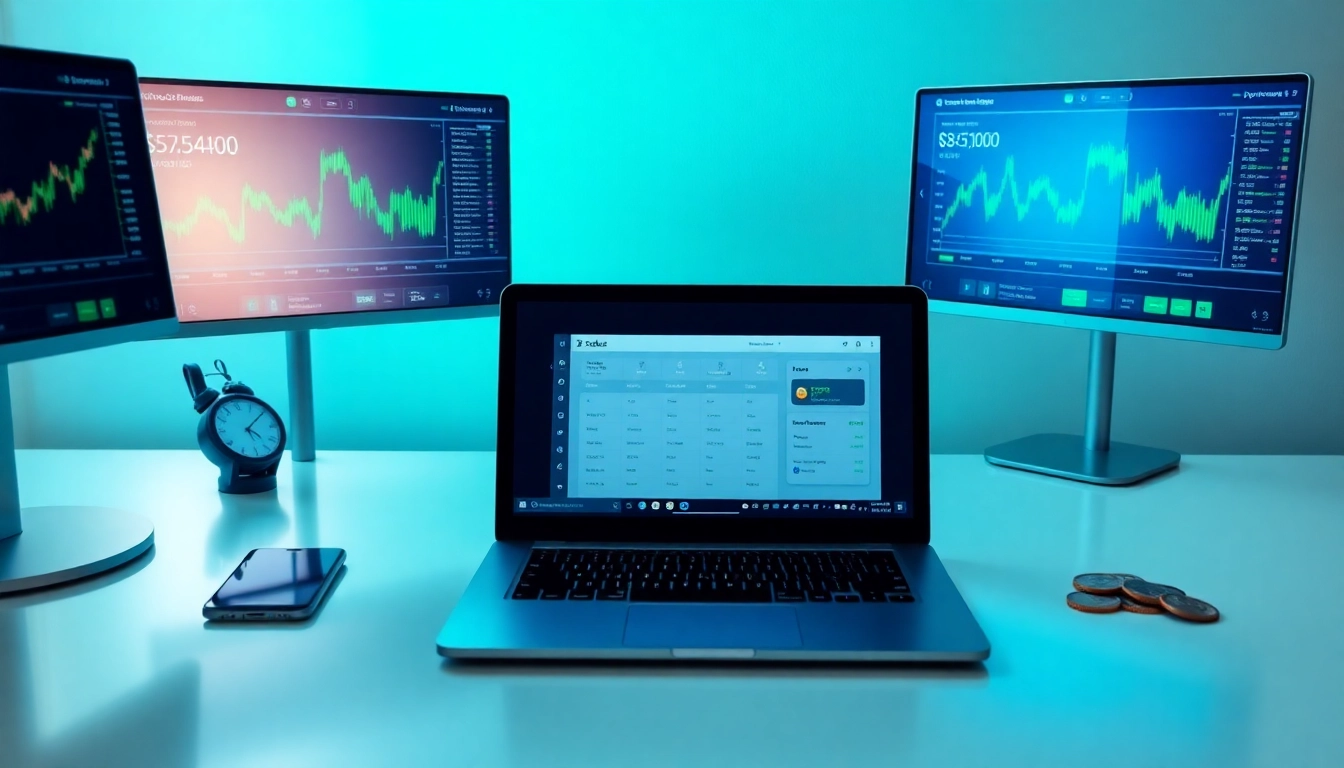The Ultimate Exodus Wallet Guide: Benefits, Features & Tips 2024

Understanding the Exodus Wallet
What is an Exodus Wallet?
The exodus wallet is a software-based cryptocurrency wallet that is designed to provide users with a simple interface to manage their digital assets. Founded in 2015, Exodus focuses on creating user-friendly software for holding, trading, and managing over 100 types of cryptocurrencies, including Bitcoin, Ethereum, and many altcoins. With a vision to empower users, Exodus combines a hot wallet and an in-built exchange, enabling users to buy and swap cryptocurrencies seamlessly from the app.
Key Features of the Exodus Wallet
Exodus wallet packs in an impressive array of features tailored for both beginners and seasoned investors:
- User-Friendly Interface: The wallet is designed to be intuitive, making it easy for anyone to navigate.
- Multi-Currency Support: It supports over 100 cryptocurrencies which makes it versatile for different trading needs.
- Built-in Exchange: Users can swap one cryptocurrency for another without leaving the application.
- Mobile and Desktop Versions: Available on multiple platforms, Exodus caters to users who prefer flexibility.
- Portfolio Overview: The wallet includes features to visualize your portfolio performance, making it easy to track your holdings.
- Security: The wallet allows local storage of private keys on the user’s device, keeping assets secure while still allowing cold storage options.
How Does the Exodus Wallet Work?
The functionality of the Exodus Wallet is centered around managing and securing cryptocurrency through a straightforward client interface. When users create a wallet, they generate a unique wallet address that is visible to others and allows them to receive funds. Each transaction made on the wallet is confirmed via the blockchain, ensuring transparency. The wallet handles most operations behind the scenes, making the wallet experience seamless for users—whether they are sending, receiving, or swapping cryptocurrencies.
Getting Started with the Exodus Wallet
How to Download and Install the Exodus Wallet
Downloading and installing the Exodus Wallet is simple:
- Visit the official Exodus website or your device’s app store.
- Select the option to download the wallet app suitable for your operating system—Windows, Mac, Linux, iOS, or Android.
- Follow the installation prompts on your device.
- Once installed, open the application and proceed with the setup process.
Setting Up Your First Wallet
Once the app is launched, users are guided to create their first wallet:
- Click on “Create a New Wallet.”
- Write down your recovery phrase—this phrase is crucial for restoring your wallet in case of device loss.
- Confirm your recovery phrase by re-entering it, ensuring you have noted it down correctly.
- Your wallet is ready to use, and users can start with their first deposit!
Basic Functions of the Exodus Wallet
The Exodus Wallet allows users to perform several basic functions:
- Sending and Receiving Cryptocurrency: Use the ‘Send’ feature to enter a recipient’s wallet address or scan a code. To receive, share your public wallet address.
- Swapping Cryptocurrencies: The built-in exchange lets you swap one cryptocurrency for another in just a few clicks.
- Viewing Transaction History: Users can track their transactions and monitor their investment performance within the wallet.
- Portfolio Tracking: Users can view their total asset value and track price changes over time.
Advanced Features of the Exodus Wallet
Using the Built-in Exchange Functionality
The built-in exchange is one of the cornerstone features of the Exodus Wallet. It allows users to exchange cryptocurrencies within the wallet without needing third-party services. The exchange operates with competitive rates, giving users flexibility in trading in a fast and secure manner.
Users can simply select the cryptocurrencies they wish to swap, enter the amount, and confirm the transaction. The wallet will provide an estimated time frame for transaction completion. This feature is ideal for those looking to quickly liquidate their assets or engage in trading strategies without having to shift funds to an external exchange.
Accessing Web3 Directly Through Exodus Wallet
In the ever-evolving landscape of cryptocurrencies and decentralized finance (DeFi), Exodus has integrated Web3 capabilities. Users can interact with decentralized applications (dApps) directly through the wallet, significantly enhancing their experience.
This feature enables accessing protocols for lending, borrowing, NFT marketplaces, and much more directly from the wallet, aligning with the growing trend of managing financial assets in DeFi ecosystems.
Integrating Hardware Wallets with Exodus
For users seeking enhanced security, Exodus offers the ability to integrate with hardware wallets such as Trezor. This integration allows users to keep their private keys offline while maintaining the convenience of accessing their assets through the Exodus interface.
This feature is particularly advantageous for long-term investors who want the added peace of mind that comes with cold storage while enjoying a user-friendly interface to manage their investments.
Security Measures for Your Exodus Wallet
Is the Exodus Wallet Safe for Long-Term Storage?
Exodus employs various security measures making it a robust choice for managing digital assets. While it is primarily a hot wallet, it offers built-in features such as password protection, pin codes, and biometric security on mobile devices.
For long-term asset storage, it’s advisable to use the wallet in conjunction with a hardware wallet. This practice ensures that your private keys are kept offline, minimizing the risk of hacking or phishing attacks.
Understanding Security Protocols of Exodus
Exodus uses a combination of public and private keys to manage transactions and secure user accounts. Unlike centralized exchanges, Exodus does not store users’ private keys, which enhances security—only users have access to their keys.
The wallet employs AES-256 encryption, providing an added layer of protection for sensitive information. Regular security updates and user alerts about potential threats further bolster its security protocols.
Best Practices for Protecting Your Digital Assets
To maximize security while using the Exodus Wallet, consider the following best practices:
- Secure Your Recovery Phrase: Always keep your recovery phrase offline and in a secure location.
- Enable Two-Factor Authentication: If using services that support it, enable two-factor authentication (2FA).
- Update Regularly: Keep the wallet updated to the latest version to benefit from security patches and enhancements.
- Be Wary of Phishing Attacks: Educate yourself on common phishing tactics to avoid being caught in a trap.
Maximizing Your Experience with the Exodus Wallet
Common Challenges and Solutions
Like any platform, users may encounter challenges when using the Exodus Wallet:
- Lost Recovery Phrase: If you lose your recovery phrase, you cannot access your wallet. Ensure it is stored securely.
- Transaction Fees: Be aware of potential fees associated with swaps and transactions. Understanding fee structures can help manage costs better.
- Device Compatibility Issues: Ensure you are using a compatible device and operating system to avoid any functionality issues.
Engaging with the Exodus Community
Exodus has cultivated a vibrant community of users and developers. Engaging with this community can enhance your experience:
- Join Social Media Platforms: Follow Exodus on Twitter, Reddit, and other platforms for updates and tips.
- Participate in Forums: Contribute to conversations and share experiences with other users in forums such as the Exodus community forums and Reddit threads.
- Attend Webinars and Meetups: Stay informed about the latest features and updates by participating in interactive sessions hosted by Exodus.
Future Trends in Wallet Technologies and Exodus
The cryptocurrency landscape is rapidly evolving, and wallets like Exodus are at the forefront of adopting new technologies. Future trends may include:
- DeFi Integrations: As decentralized finance continues to grow, expect deeper integrations with DeFi protocols, allowing more financial activities directly from the wallet.
- Enhanced Privacy Solutions: We might see advancements in privacy features to protect user data and transactions better.
- Interoperability: Increased support for cross-chain swaps and transactions, enhancing the wallet’s functionality across different blockchain platforms.




